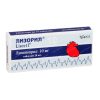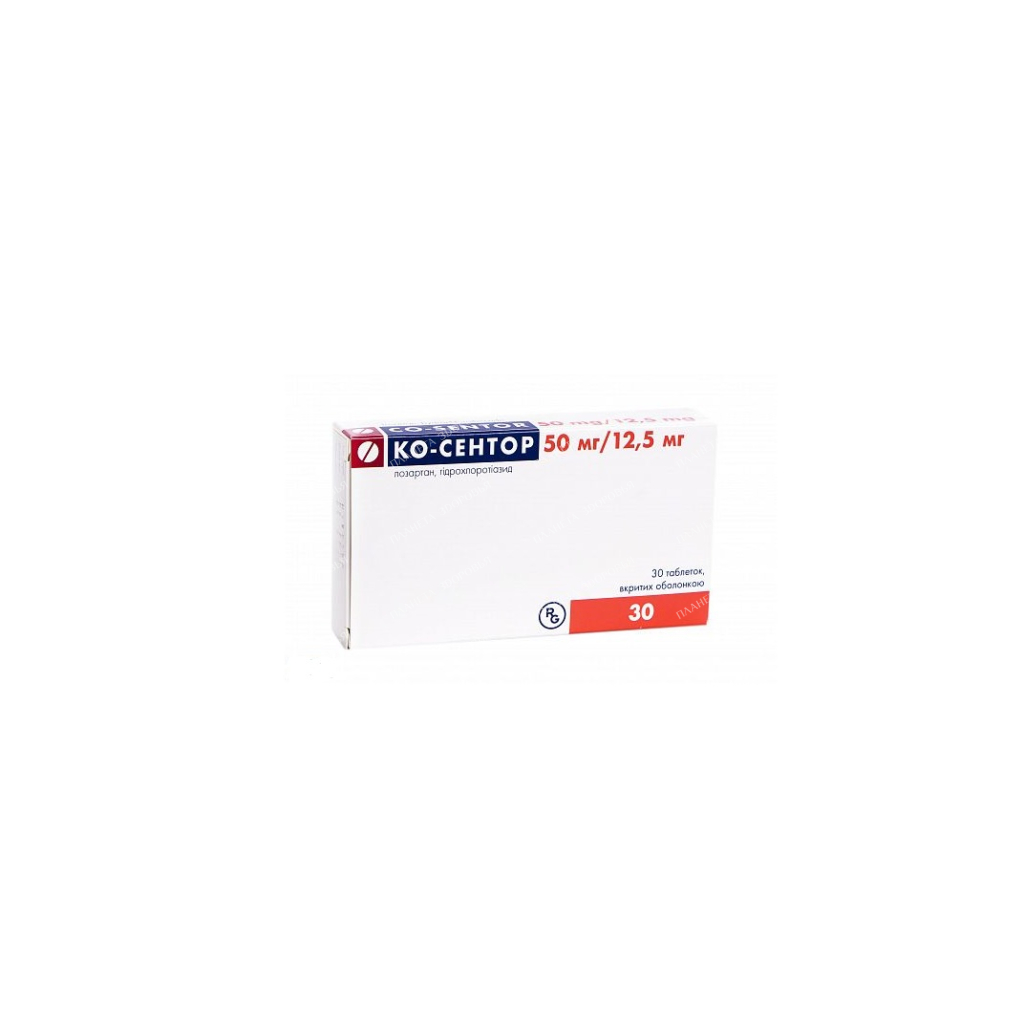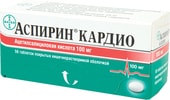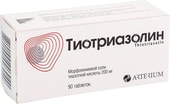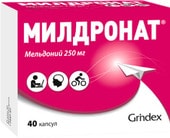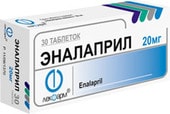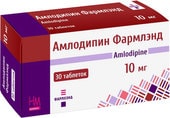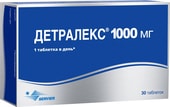Co-Sentor tab. p / captivity. about. 50mg/12.5mg in bl. in pack. №10х3
$19.00
Co-Sentor Tablets: Comprehensive Information for Effective Blood Pressure Management
Description: Co-Sentor® is a combination medication containing losartan potassium, an angiotensin II receptor antagonist (ARB), and hydrochlorothiazide, a thiazide diuretic. It is available in three strengths: 50mg/12.5mg, 100mg/12.5mg, and 100mg/25mg.
Key Features:
- Effective Blood Pressure Control: Co-Sentor® provides additive blood pressure lowering effects compared to its individual components.
- 24-Hour Action: The antihypertensive effect of Co-Sentor® lasts for 24 hours, ensuring consistent blood pressure control.
- Minimal Heart Rate Impact: Unlike some other antihypertensive medications, Co-Sentor® has minimal impact on heart rate.
- Diverse Patient Population: Co-Sentor® is effective for various patient demographics, including men and women, different races, and different age groups.
Composition:
- Co-Sentor® 50/12.5 mg:
- Active Ingredients: Losartan potassium – 50 mg; Hydrochlorothiazide – 12.5 mg.
- Excipients: Magnesium stearate, pregelatinized starch, lactose monohydrate, microcrystalline cellulose, Opadry II 85F23426 orange (iron oxide black E 172, sunset yellow E 110, iron oxide yellow E 172, talc, macrogol 3350, titanium dioxide E 171, polyvinyl alcohol).
- Co-Sentor® 100/12.5 mg:
- Active Ingredients: Losartan potassium – 100 mg; Hydrochlorothiazide – 12.5 mg.
- Excipients: Magnesium stearate, pregelatinized starch, lactose monohydrate, microcrystalline cellulose, Opadry II 85F27044 yellow (iron oxide black E 172, sunset yellow E 110, iron oxide yellow E 172, talc, macrogol 3350, titanium dioxide (E 171), polyvinyl alcohol).
- Co-Sentor® 100/25 mg:
- Active Ingredients: Losartan potassium – 100 mg; Hydrochlorothiazide – 25 mg.
- Excipients: Magnesium stearate, pregelatinized starch, lactose monohydrate, microcrystalline cellulose, Opadry II 85F23426 orange (iron oxide black E 172, sunset yellow E 110, iron oxide yellow E 172, talc, macrogol 3350, titanium dioxide E 171, polyvinyl alcohol).
Pharmacological Action:
- Losartan:
- Blocks the effects of angiotensin II, a hormone that constricts blood vessels.
- Reduces peripheral vascular resistance, blood pressure, and pressure in the pulmonary circulation.
- Prevents myocardial hypertrophy and improves exercise tolerance in heart failure.
- Hydrochlorothiazide:
- Increases sodium and water excretion, reducing blood volume.
- Alters vascular wall reactivity and reduces the effect of vasoconstrictor substances.
- Provides a diuretic effect that lasts for 6 to 12 hours.
Indications:
- Treatment of high blood pressure in patients who require combination therapy.
- Reducing cardiovascular disease risk and mortality in patients with high blood pressure and left ventricular hypertrophy.
Contraindications:
- Hypersensitivity to losartan, hydrochlorothiazide, or any component of the drug.
- Untreated hypokalemia or hypercalcemia.
- Severe liver failure.
- Cholestasis or obstruction of the biliary tract.
- Refractory hyponatremia.
- Symptomatic hyperuricemia/gout.
- Severe renal failure (creatinine clearance < 30 ml/min).
- Anuria.
- Severe arterial hypotension.
- Hypovolemia (including due to high doses of diuretics).
- Pregnancy and lactation.
- Age up to 18 years.
Precautions:
- Bilateral renal artery stenosis or stenosis of the artery of a single kidney.
- Hypovolemia (including diarrhea, vomiting).
- Hyponatremia (increased risk of hypotension in patients on a low-salt diet).
- Hypochloremic alkalosis.
- Hypomagnesemia.
- Hypokalemia.
- Connective tissue diseases (including systemic lupus erythematosus).
- Diabetes mellitus.
- Gout.
- Bronchial asthma.
- Aggravated allergic history.
- Hyperuricemia.
- Hypercalcemia.
- Mild to moderate hepatic insufficiency.
- Aortic or mitral valve stenosis.
- Obstructive hypertrophic cardiomyopathy.
- Concomitant use with NSAIDs, including COX-2 inhibitors.
Dosage and Administration:
- Oral administration, regardless of meals, with a glass of water.
- Initial and maintenance dose: 50 mg losartan + 12.5 mg hydrochlorothiazide (1 tablet of Co-Sentor®) per day.
- Dose may be increased to 100mg/12.5mg or 100mg/25mg per day, depending on blood pressure control.
- Maximum dose: One tablet of Co-Sentor® 100mg/25mg once a day.
- Antihypertensive effect typically achieved within 3-4 weeks of therapy.
Side Effects:
- Most common: Dizziness, headache, fatigue, asthenia.
- Other potential side effects include:
- Blood and lymphatic system disorders: Anemia, ecchymosis, hemolysis.
- Immune system disorders: Anaphylactic reactions, angioedema, urticaria.
- Nervous system disorders: Insomnia, anxiety, depression, tremor, syncope.
- Cardiovascular disorders: Hypotension, orthostatic hypotension, arrhythmias.
- Respiratory disorders: Cough, nasal congestion, sinusitis.
- Gastrointestinal disorders: Abdominal pain, nausea, diarrhea, dyspepsia.
- Skin disorders: Alopecia, dermatitis, rash, pruritus.
- Musculoskeletal disorders: Muscle cramps, back pain, myalgia.
Drug Interactions:
- Co-administration with drugs that lower blood pressure may increase the risk of hypotension.
- Potassium-sparing diuretics, potassium preparations, and salt substitutes containing potassium may increase potassium levels.
- Lithium preparations may increase lithium levels.
- NSAIDs, including COX-2 inhibitors, may reduce the antihypertensive effect of losartan.
- Thiazide diuretics may interact with various drugs, including barbiturates, hypoglycemic agents, other antihypertensive drugs, pressor amines, non-depolarizing muscle relaxants, lithium preparations, drugs used to treat gout, anticholinergics, cytotoxic agents, salicylates, methyldopa, cyclosporine, digitalis preparations, and drugs affected by changes in serum potassium.
Overdose:
- Symptoms: Pronounced hypotension, tachycardia, bradycardia, loss of electrolytes (hypokalemia, hypochloremia, hyponatremia), dehydration.
- Treatment: Symptomatic and supportive therapy, gastric lavage, correction of water and electrolyte imbalances.
Important Considerations:
- Use with caution in patients with reduced circulating blood volume or hyponatremia.
- Monitor electrolyte levels regularly in patients with renal insufficiency.
- Use with caution in patients with hepatic insufficiency.
- Do not use in patients with severe hepatic impairment.
- Monitor potassium levels and creatinine clearance in patients with heart failure.
- Avoid use with potassium-sparing diuretics, potassium supplements, and salt substitutes.
- Use with caution in patients with bilateral renal artery stenosis or stenosis of the artery of a single kidney.
- Avoid dual blockade of the RAAS.
- Use with caution in patients with coronary artery disease or cerebrovascular disease.
- Use with caution in patients with heart failure.
- Use with caution in patients with aortic or mitral valve stenosis, or obstructive hypertrophic cardiomyopathy.
- Monitor for ethnic differences in response to therapy.
Disclaimer: This information is intended for general knowledge and does not constitute medical advice. Please consult with your doctor or healthcare provider for personalized advice, diagnosis, and treatment.
| INN | LOZARTAN+HYDROCHLOROTHIAZIDE |
|---|---|
| The code | 46 370 |
| Barcode | 5 997 001 301 401 |
| Dosage | 50mg/12.5mg |
| Active substance | Losartan, hydrochlorothiazide |
| Manufacturer | Gedeon Richter Poland Co Ltd., Poland/Gedeon Richter Pls., Hungary, Hungary |
| Importer | IOOO Interfarmaks 223028 Minsk region, Minsk district, Zhdanovichsky s / s, ag. Zhdanovichi, st. Star, 19a-5, room. 5-2 |
Related products
Cardiovascular Health
Cardiovascular Health
 Free worldwide shipping on orders $99+
Free worldwide shipping on orders $99+  US: temporary delays — postal services aligning new import rules,
US: temporary delays — postal services aligning new import rules,  EU: 1–2 weeks,
EU: 1–2 weeks,  Worldwide: 1–4 weeks
Worldwide: 1–4 weeks 

